35+ Sample Company Performance Contract Templates
-
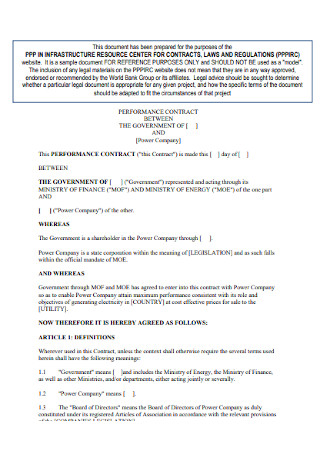
Company Performance Contract
download now -
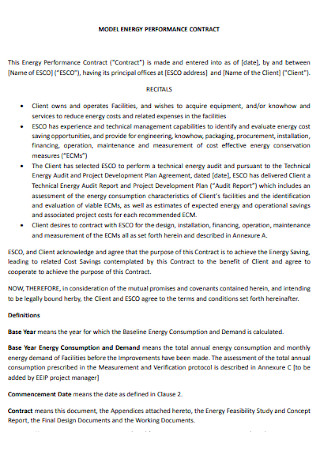
Model Energy Performance Contract
download now -
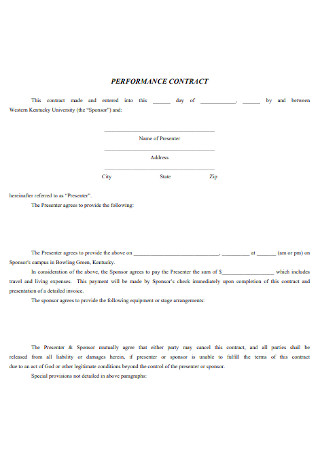
Sample Performance Contract
download now -
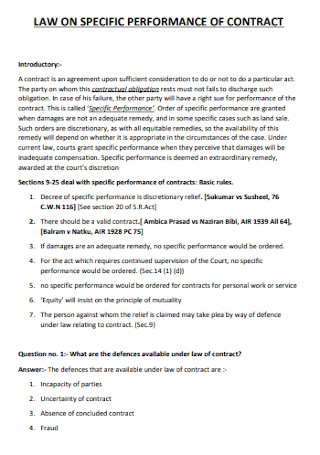
Law on Specific Performance Contract
download now -
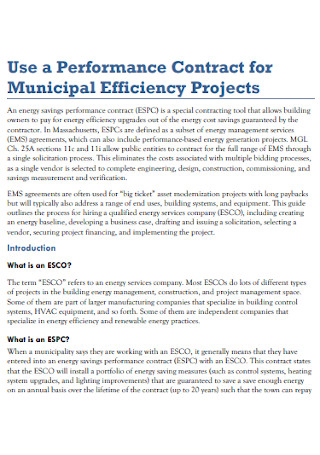
Municipal Projects Performance Contract
download now -
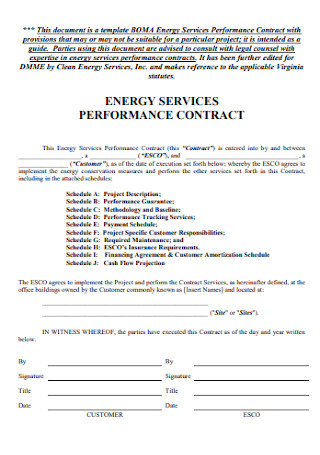
Energy Services Performance Contract
download now -
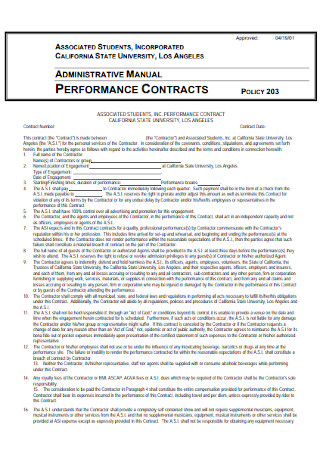
Student Performance Contract
download now -
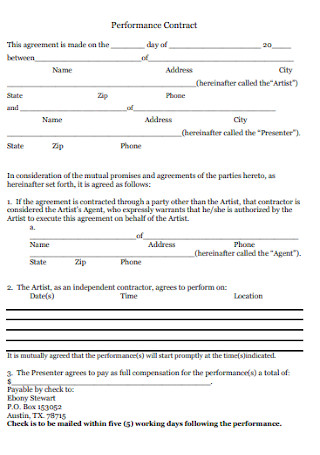
Basic Performance Contract Template
download now -
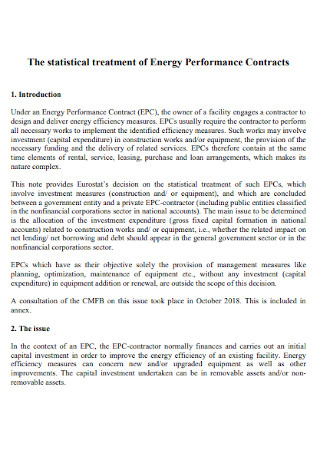
Treatment Performance Contract
download now -
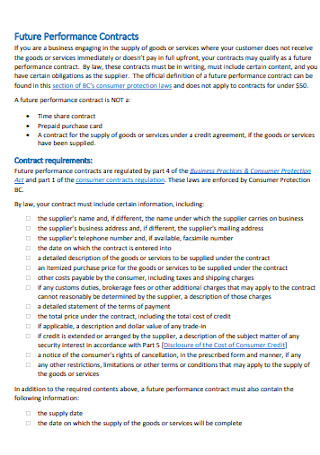
Future Performance Contracts
download now -
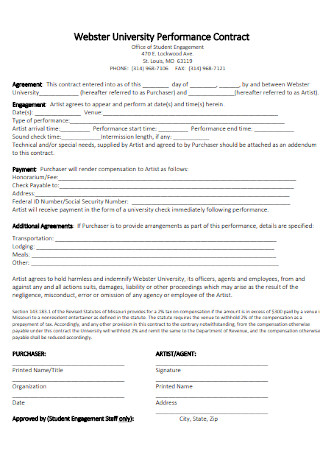
University Performance Contract
download now -
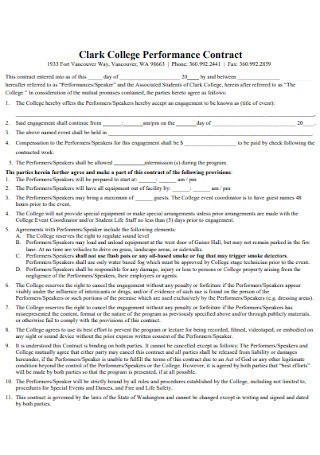
College Performance Contract
download now -
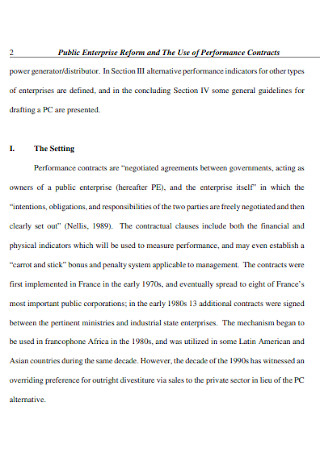
Public Performance Contract
download now -
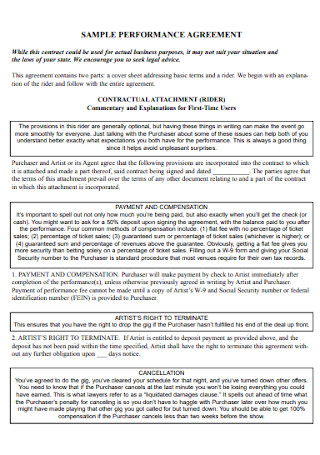
Sample Performance Contract Example
download now -
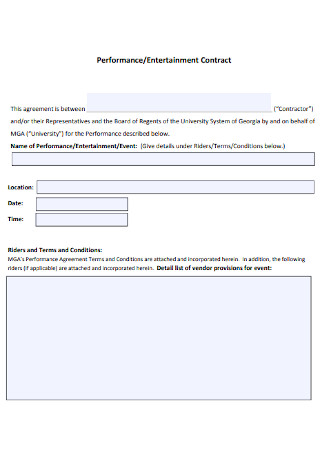
Performance and Entertainment Contract
download now -
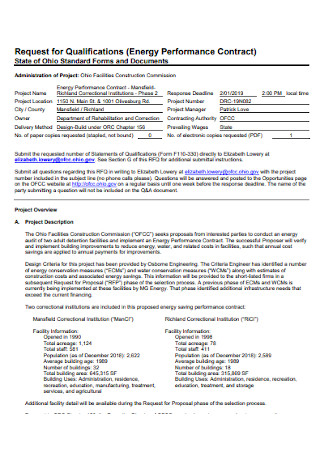
Simple Energy Performance Contract
download now -
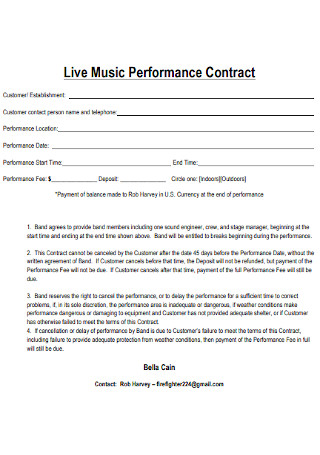
Live Music Performance Contract
download now -
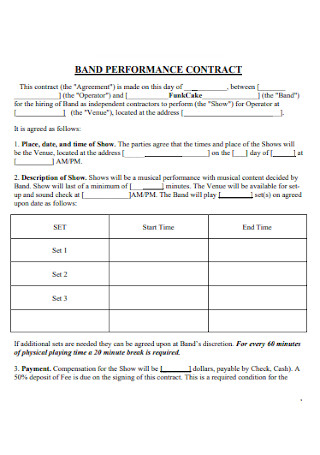
Band Performance Contract
download now -
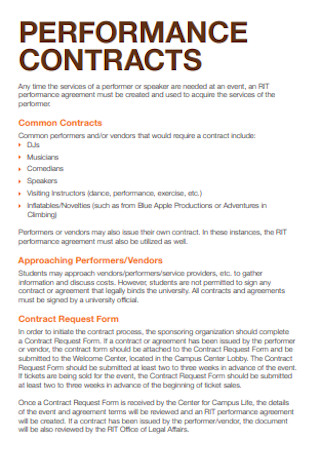
Standard Performance Contract Template
download now -
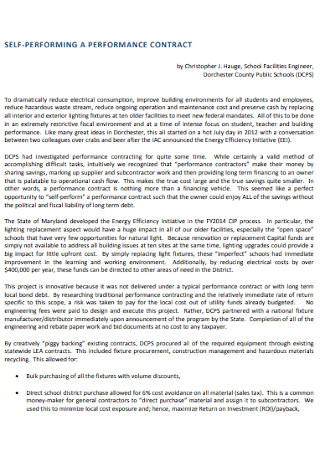
Self-Performance Contract Template
download now -
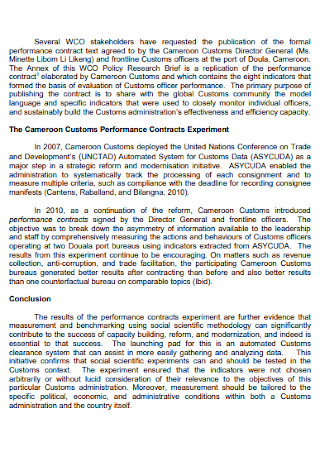
Performance Contracts for Customs Officers
download now -
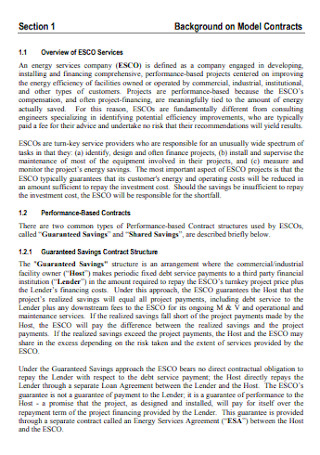
Model Performance Contract Template
download now -
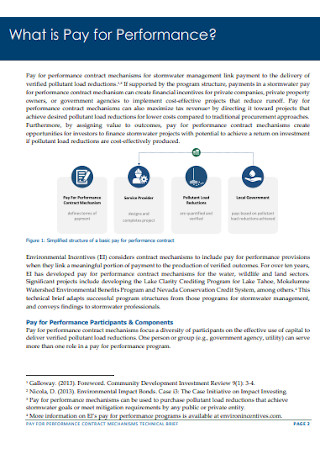
Store water Management Performance Contract
download now -
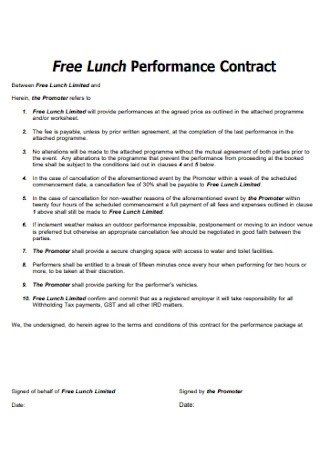
Free Lunch Performance Contract
download now -
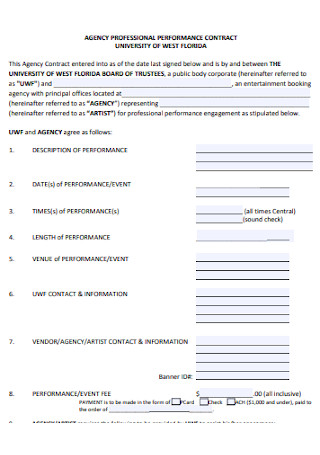
Professional Agent Performance Contract
download now -
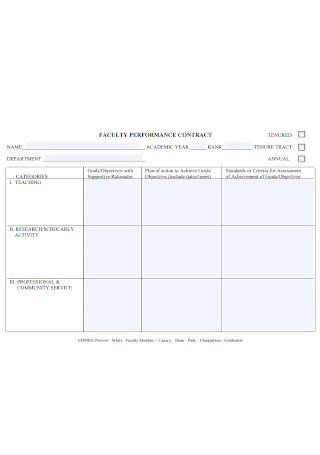
Faculty Performance Contract
download now -
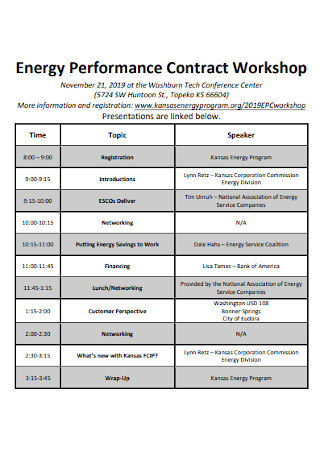
Performance Contract Workshop Template
download now -
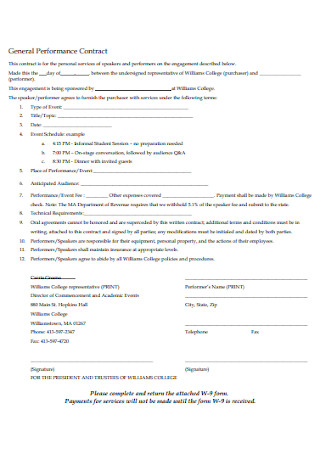
General Performance Contract
download now -
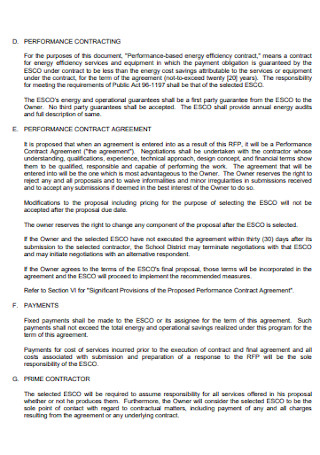
Work Performance Contract Template
download now -
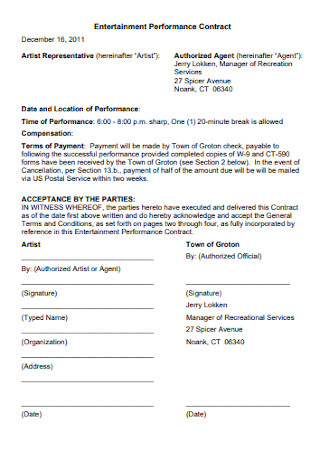
Entertainment Performance Contract
download now -
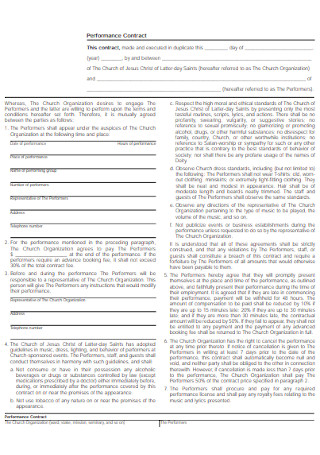
Printable Performance Contract Example
download now -
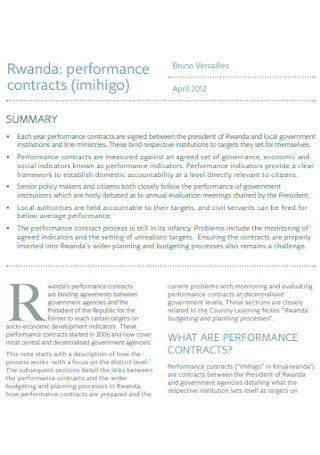
Performance Budget Contract
download now -
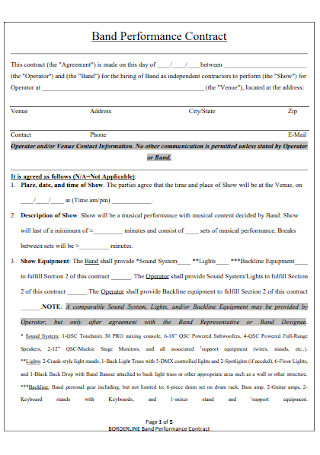
Basic Band Performance Contract
download now -
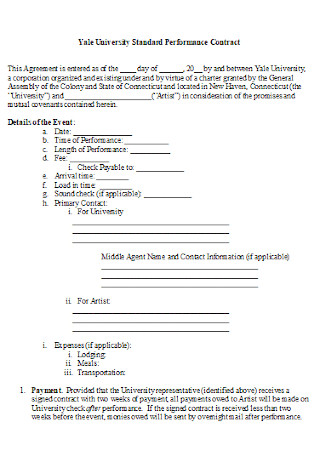
Standard University Performance Contract
download now -
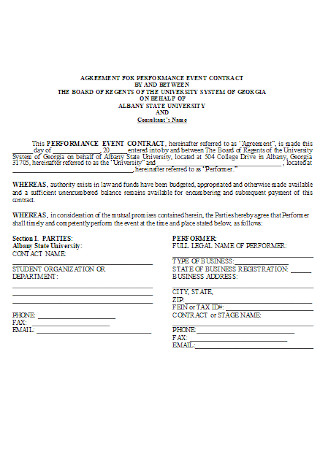
Event Performance Contract
download now -
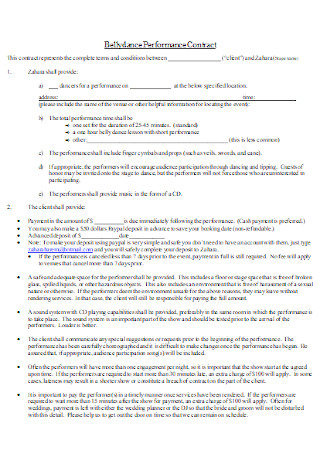
Bellydance Performance Contract
download now
FREE Performance Contract s to Download
35+ Sample Company Performance Contract Templates
What Is a Performance Contract?
Qualities You Can Find in Great Performers
How To Become a Better Performer
What is a live performance contract?
What does a performance guarantee mean?
Why use a performance contract?
What Is a Performance Contract?
According to the Merriam-Webster dictionary, performance is the execution of a particular action. A performance contract ensures that the delivery of action meets a company, a manager, or a businessman’s expectations. It is an agreement between a performer and his/her boss or clientele. Most often, there are penalties if a performer doesn’t meet the standards of an employer or a client under a performance agreement. In large corporations, managers use this contract as a tool to improve an employee’s work performance. In partnerships, business partners use a performance agreement document to define both their roles in the partnership. In entertainment, companies use this contract to employ entertainers for office parties or special events. Additionally, performers or venue owners use this written agreement during weddings, shows, concerts, family reunions, etc. In the entertainment industry, you can also call a performance contract as an entertainment contract, a music performance contract, or a band contract.
According to the U.S. Bureau of Labor Statistics, in 2018, about 187,600 musicians and singers were employed.
In the same year, 21,200 dancers and choreographers had jobs as performers.
Looking at the big picture, Statista reports that the worth of the entertainment and media market worldwide reached about $678 billion in 2018.
Qualities You Can Find in Great Performers
Entertainers usually do their job for the money, but great performers are more than that. Exceptional entertainers have qualities that influence the community, their audiences, and even their inner circles. So, here are the qualities of great performers.
How To Become a Better Performer
An entertainer survives by signing more performer contracts because performing is what he/she does for a living. Whether you are doing a dance performance, a music concert, or a theatrical act, you must give your best shot in all your arrangements. With that said, here are the steps to become a better performer.
Step 1: Ask Yourself the Reason Why You are Performing
Why are you performing? Your reason for doing what you are doing will reflect on your performance. Every singer, dancer, or actor has a reason for doing their jobs. It can be for money, for fame, for the audience, or a good cause. Your reason for performing is a motivating factor that will help you become comfortable with what you are doing. So, ask the question over and over again, and you’ll see what resonates within you.
Step 2: Always Prepare Before Getting on Stage
Performers can still get nervous even when they know they’ve prepared. How much more tension will someone get when he/she doesn’t even prepare? Therefore, as a performer, you must be more than a hundred percent prepared to overcome your anxiety on stage. By giving your all in practice, you will be able to show your best talent to your audiences. Practice everything, every detail of what you are going to do on stage.
Step 3: Understand Your Material
You must relate to the music you are singing or dancing if you are a singer or a dancer. That is how you connect with the crowd who got all their eyes on you. For example, a wedding band must choose the right songs for the wedding reception, which couples can relate to. Another example is in musicals, where every actor’s understanding of his script helps his audience correctly interpret the character.
Step 4: Deal With Your Insecurities
Insecurities will always be present when one performs, especially in huge events. Insecurities are like energy. They are forces that directly affect the way one performs. If that energy says that you’re not a good performer, you will probably do a poor performance if you believe your nerves. Therefore, transform your insecurities into excitement. One good example is a public speaker who makes long speeches for his audience. His strategy is to tell the crowd that he is nervous before he makes his speech; this statement then gives him more confidence. Also, he tells his audience that he is excited as well. Just those two statements changed the speaker’s nerves and gave him more enthusiasm in speaking.
Step 5: Do What You Have to Do
It will be pointless to master all the four steps above without doing what you have to do. You have to perform, even if your mind tells you that you don’t have any place to perform. Look for entrepreneurs, company owners, or individuals who need your service. Once you’re an established performer, your clients will spread the word for you. That is if you do your part well under a performance contract.
What is a live performance contract?
A live performance contract is an agreement between an artist or a manager and a venue owner who stages the performance. The details of the contract will depend on what the artist is going to perform and where he/she is going to do it. If you are a manager entering into a contract on behalf of an artist, make sure you have the authority to do so under another contract. When a manager arranges a gig, and a problem arises, a contract will protect him from being accused as the source of the problem. The problem may be the artist or the venue owner him/herself. The manager is only the middleman.
What does a performance guarantee mean?
Generally, a performance guarantee is a term people use in the construction industry. A performance guarantee is an independent contractor’s promise to finish a particular project. It is a document that legally binds a contractor to perform his obligations. Typically, a bank or an insurance company issues this document to the employer on account of the independent contractor. A performance guarantee gives the employer assurance that a contract will meet his project deadlines on the set timeline. So, if a contractor breaches the contract, he will have to repay the employer for the damages done.
Why use a performance contract?
Venue owners or event managers usually use a contract to spell out the performance conditions to the entertainer. Note that performers or their agencies can also use the document. For example, a soloist singer can use a performance agreement to show the conditions and terms of his/her performance to a client. Other freelancers who can also use this contract are artists, bands, clowns, DJs, dancers, and magicians. Moreover, venues for entertainment can also use this contract to schedule performances, manage cancellations, and protect themselves from contingencies.
A performance contract is a document that protects the parties involved in it. If you are a manager, a written agreement will protect you when issues arise between a performer and a client. If you are a venue owner, business owner, or an individual who needs the service of an entertainer, a contract will be your means to state your expectations. If you are a performer, a contract will serve as your ticket to perform.
